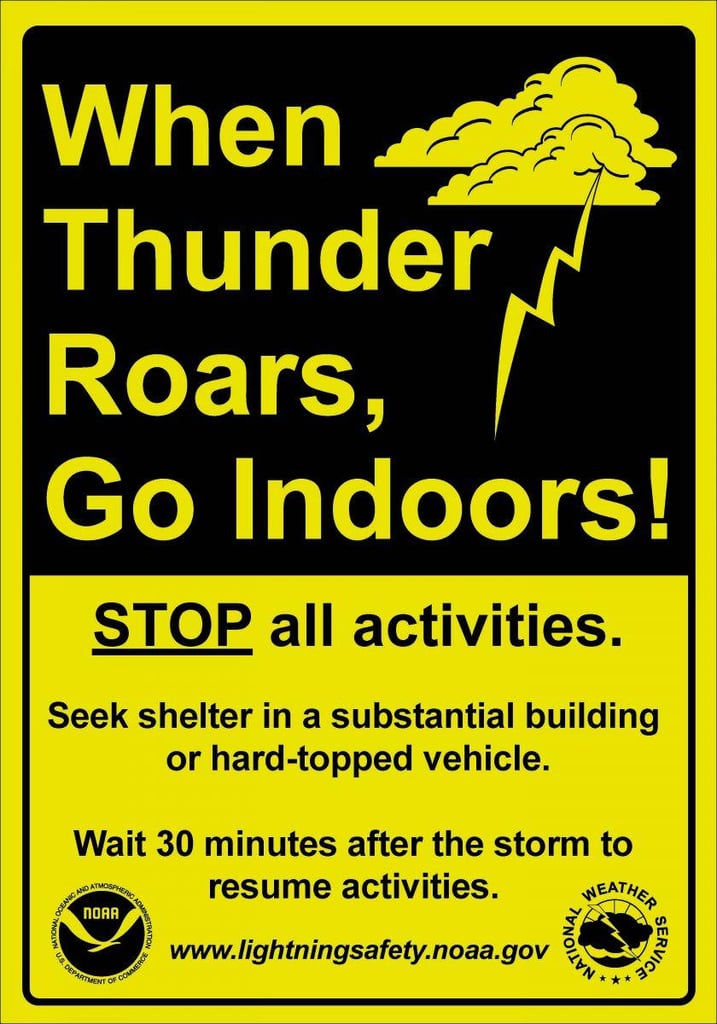EAST BRIDGEWATER — Chief Timothy Harhen and the East Bridgewater Fire Department would like to provide residents with tips on pool safety for the summer months, as well as information on lightning safety awareness.
Pool Safety
The American Red Cross reports that more than 200 children drown in swimming pools each year. Additionally, drowning is the number one cause of accidental death for children between the ages of 1 and 4, according to the Centers for Disease Control and Prevention.
The East Bridgewater Fire Department considers pool safety to be a top priority, and reminds residents to follow these safety regulations and recommended precautions:
- While Massachusetts regulation states that pools should be surrounded by a 4-foot-high barrier, East Bridgewater bylaws require a 5-foot barrier. The barrier must enclose the pool and have an access gate that self-closes, locks and opens outward from the swimming area (even if you don’t have children).
- Fasten a safety cover over the pool when it is not in use, and remove ladders to further prevent access into the pool. Pool alarms are required whenever a house door leads directly to a pool deck.
- Never leave children unattended while they are in or near a pool, and make sure they have an adult to accompany them into the water. Young or inexperienced swimmers should always wear a life jacket or inflatable arm flotation devices.
- Make sure children stay away from pool drains, pipes or any other openings to avoid getting trapped or hurt.
- Set safety instructions and share them with family, friends, neighbors and anyone else who is near or uses the pool. Advise children to stay away from pool deep ends, and to always walk, never run near the pool.
- Never use the pool if the chemical levels are not correct, or if the water is cloudy and you can’t see the bottom.
- Take a CPR course for adults and children to be prepared if an emergency situation occurs. Update skills regularly.
- Watch the local weather reports and do not swim if thunderstorms are in the forecast.
- Those who are 21 and older should drink responsibly if they choose to consume alcoholic beverages when by the pool. Overindulging increases the risk for injuries or accidental drowning.
- Avoid using glass containers by the pool. They could break and leave glass around the pool or in the water.
For a complete listing of Massachusetts building code regulations regarding swimming pools, click here.
Lightning Safety Awareness Week
The National Lightning Safety Council has designated June 20-26 as Lightning Safety Awareness Week, a time for the public to learn valuable safety information about preventing a lightning strike and what to do if you or someone you know is a victim of a lightning strike.
Every year lightning kills thousands of people worldwide, and the East Bridgewater Fire Department would like to provide the following lightning safety tips, courtesy the CDC’s National Center for Environmental Health:
Outdoor Safety Tips
Be aware: Check the weather forecast before participating in outdoor activities. If the forecast calls for thunderstorms, postpone your trip or activity, or make sure adequate safe shelter is readily available.
Go indoors: Remember the phrase, “When thunder roars, go indoors.” Find a safe, enclosed shelter when you hear thunder. Safe shelters include homes, offices, shopping centers and hard-top vehicles with the windows rolled up.
Seek shelter immediately even if caught out in the open: If you are caught in an open area, act quickly to find adequate shelter. The most important action is to remove yourself from danger. Crouching or getting low to the ground can reduce your chances of being struck, but does not remove you from danger.
Separate: If you are in a group during a thunderstorm, separate from each other. This will reduce the number of injuries if lightning strikes the ground.
Don’t stay in open vehicles, structures, and spaces: During a thunderstorm, avoid open vehicles such as convertibles, motorcycles and golf carts. Be sure to avoid open structures such as porches, gazebos, baseball dugouts and sports arenas. And stay away from open spaces such as golf courses, parks, playgrounds, ponds, lakes, swimming pools and beaches.
Don’t stay near tall structures: Do not lie on concrete floors during a thunderstorm. Also, avoid leaning on concrete walls. Lightning can travel through any metal wires or bars in concrete walls or flooring.
Indoor Safety Tips
Even though your home is a safe shelter during a lightning storm, you may still be at risk. About one-third of lightning-strike injuries occur indoors. Here are some tips to keep safe and reduce your risk of being struck by lightning while indoors.
Avoid water: Do not bathe, shower, wash dishes, or have any other contact with water during a thunderstorm as lightning can travel through a building’s plumbing.
Avoid electronic equipment: Do not use your computers, laptops, game systems, washers, dryers, stoves or anything connected to an electrical outlet. Lightning can travel through electrical systems, radio and television reception systems, and any metal wires or bars in concrete walls or flooring. Equip your home with whole-house surge protectors to protect your appliances.
Avoid corded phones: Corded phones are not safe to use during a thunderstorm. Do not use them. However, it is safe to use cordless or cellular phones during a storm.
For more information on National Lightning Safety Awareness Week, click here.
###


